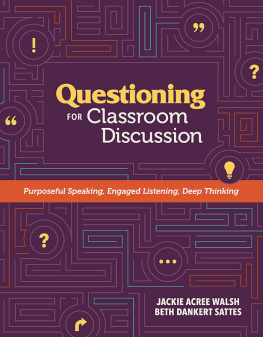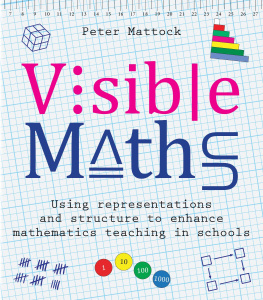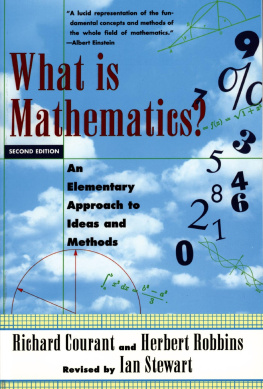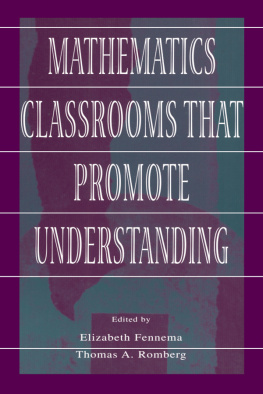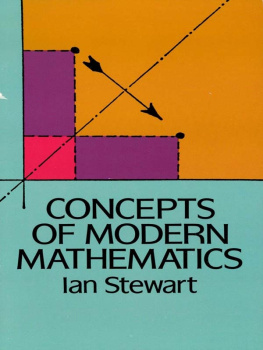.
If you would like to see a full list of the e-books Stenhouse offers, please visit us at www.stenhouse/allebooks

Stenhouse Publishers
www.stenhouse.com
Copyright 2014 by Elham Kazemi and Allison Hintz
All rights reserved. Except for the pages in the appendix, which may be photocopied for classroom use, no part of this publication may be reproduced or transmitted in any form or by any means, electronic or mechanical, including photocopy, or any information storage and retrieval system, without permission from the publisher.
Every effort has been made to contact copyright holders and students for permission to reproduce borrowed material. We regret any oversights that may have occurred and will be pleased to rectify them in subsequent reprints of the work.
Library of Congress Cataloging-in-Publication Data
Kazemi, Elham, 1970 author.
Intentional talk : how to structure and lead productive mathematical discussions / Elham Kazemi and Allison Hintz ; foreword by Megan Franke.
pages cm
Includes bibliographical references and index.
ISBN 978-1-57110-976-7 (pbk. : alk. paper)ISBN 978-1-62531-008-8 (ebook) 1. Forums (Discussion and debate) 2. MathematicsStudy and teaching (Elementary) 3. Problem solvingStudy and teaching (Elementary) I. Hintz, Allison, 1962 author. II. Title.
QA20.F67K39 2014
372.7dc23
2013040033
Cover design, interior design, and typesetting by Martha Drury
Manufactured in the United States of America

20 19 18 17 16 15 14 9 8 7 6 5 4 3 2 1
For Grace, Neeku, Roshann, and William
CONTENTS
by Megan Franke
FOREWORD
By Megan Franke
Elham Kazemi and Allison Hintz take you inside mathematics classrooms and highlight the details of practice that will help you create productive mathematics discussions in your own classroom. Whether you are a teacher new to mathematics conversations or have been enjoying them with your students for a long time, Intentional Talk will speak to you. Elham and Allison provide vignettes, a set of principles to guide your decision making, and a collection of tools to help you navigate this complex work. This combination will help you develop your vision of what is possible, know how to improve what you are doing now, and continue to learn and improve your practice.
Everything we know about student learning and classroom practice tells us that classroom conversations are crucial to mathematics learning. We know that students who explain the details of their mathematical ideas, engage with the details of others mathematical ideas, and have others engage with their own mathematical ideas achieve mathematically. We also know that engaging in mathematical conversations in productive ways can help students see themselves as smart and competent in mathematics. We have seen that students who take part in mathematical conversations also learn to listen to others, ask insightful and respectful questions, and reflect on their own understandings. For these reasons and more, we must make the most of and continually improve our classroom mathematics discussions.
We know that orchestrating classroom discussions can be challenging. Elham and Allison build on all of the wonderful and productive classroom discussion work and detail what it looks and feels like to navigate the moment-to-moment interactions within mathematics classroom discussions. They tease out the different types of mathematical conversations that can occur. They share ways to design and carry out strategy-sharing conversations as well as a range of more targeted talk. The principles and tools provided for each kind of discussion will guide you toward meeting your mathematical goals as well as the needs of each and every one of your students.
Intentional Talk will help you create a classroom where all of your students are engaged in mathematical discussions in ways that help them learn and see themselves as mathematicians. You will want to read it more than once; you will want to mark pages, copy the tools, and revisit the student and teacher interactions often.
ACKNOWLEDGMENTS
This book has been in the making for more than ten years, and we owe many thanks to Toby Gordon, our amazing editor at Stenhouse, for sparking the idea of a book on classroom discussions many moons ago and for being there to see this project to fruition. Her encouragement and guidance helped us see this work to the finish line. We were also helped by the ideas of two anonymous reviewers, who took great care in giving us feedback to strengthen our drafts. Adrian Cunard, Becca Lewis, and Teresa Lind were kind enough to read and provide helpful comments on early drafts.
We give special thanks to the staff and students at Lakeridge Elementary School in Renton, Washington, who fill these pages with their brilliant ideas. It has been a life-changing experience working with you. Thank you for opening your classrooms and being willing to take risks, try new ideas, and teach us so much about cultivating rich classroom communities that nurture childrens minds as well as their humanity. A special thank-you to photographer Matt Hagen for capturing the beautiful images of Lakeridge teachers and students used throughout the book and to Lynsey Gibbons and Kendra Lomax for organizing the photographs.
We have learned so much from the scholarship and practice of many others in the field of mathematics and teacher education. It is difficult to convey how much we are indebted to the team of scholars and teachers that have contributed to the development of Cognitively Guided Instruction (CGI): researchers Tom Carpenter, Elizabeth Fennema, Megan Franke, Linda Levi, Susan Empson, Randy Philipp, and Vicki Jacobs; and the CGI teachers from Madison, Wisconsin, especially Annie Keith and Mazie Jenkins. We believe that childrens mathematical thinking is at the heart of inspired teaching. Megan Franke, thank you for everything. We stand in awe of you. The principles that have guided our work derive from our collaboration with Megan and other members of the Learning in, from, and for Teaching Practice (LTP) group: Magdalene Lampert, Hala Ghousseini, Heather Beasley, Kate Crowe, Adrian Cunard, and Angela Turrou. We are grateful for the way the LTP group challenged us to bring to life the important work teachers do when leading mathematical discussions. We have benefited from collaboration with our colleagues in the Mathematics Education Project (MEP) at the University of Washington and the Expanding the Community of Mathematics Learners (ECML) project, where we, Allison and Elham, met. So many of our ideas about designing professional learning experiences and working with teachers have emerged from the energetic and thoughtful ideas of our MEP and ECML colleagues: Julia Aguirre, Ruth Balf, Filiberto Barajas-Lpez, Sunshine Campbell, Lisa Jilk, Megan Kelley-Petersen, Anita Lenges, Laura Mah, Leslie Nielsen, Katy Pence, Rosemary Sheffield, Gini Stimpson, and Bryan Street. These are just a few of the hundreds of teachers and teacher educators with whom we have worked who have dedicated themselves to improving their practice, digging deeply into content together, and transforming the mathematical learning experiences of children.
Our knowledge about teaching and discourse has been greatly informed by the inspirational work of many other scholars and their teaching and research teams: Deborah Ball, Virginia Bastable, Jo Boaler, Courtney Cazden, Suzanne Chapin, Marta Civil, Paul Cobb, Maarten Dolk, Cathy Fosnot, Karen Fuson, Kim Hufferd-Ackles, Cathy Humphries, Magdalene Lampert, Kay McClain, Sarah Michaels, Judit Moschkovich, Catherine OConnor, Mike Rose, Susan Jo Russell, Deborah Schifter, Peg Smith, Mary Kay Stein, Terry Wood, and Erna Yackel.
Next page
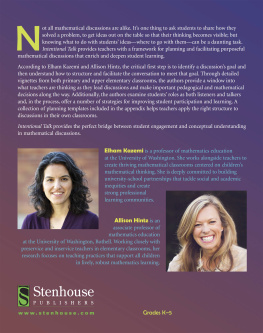
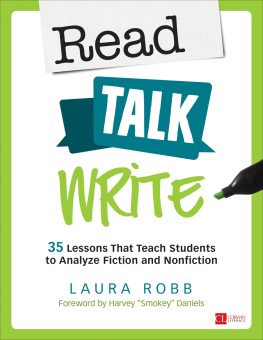

![Margaret (Peg) Smith - The Five Practices in Practice [Middle School]: Successfully Orchestrating Mathematics Discussions in Your Middle School Classroom](/uploads/posts/book/416798/thumbs/margaret-peg-smith-the-five-practices-in.jpg)
